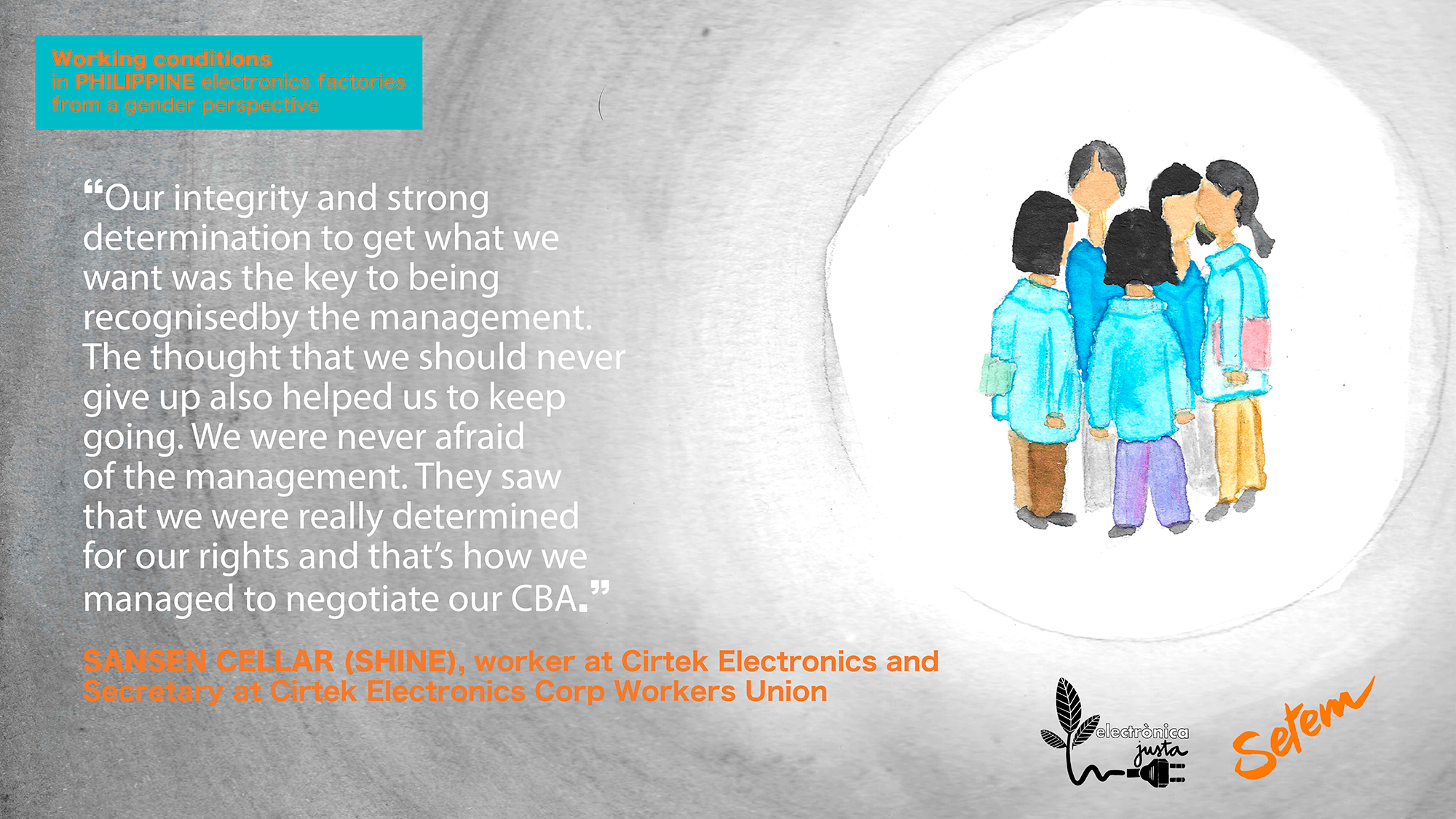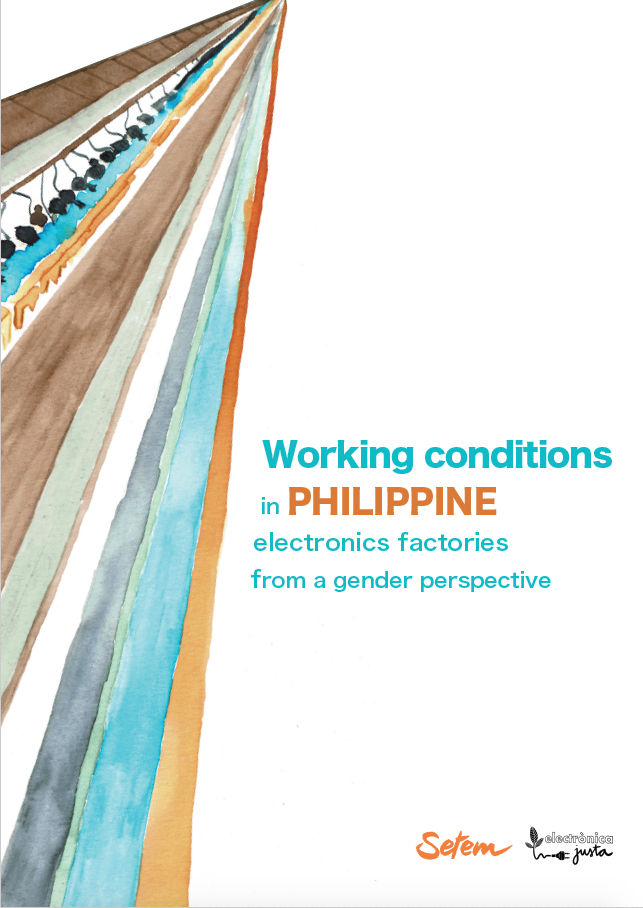We analyse the working conditions in which electronic equipment is produced by factory workers in the Philippines
The feminization of labour in the manufacturing sector has been a global trend in recent decades, extending to many economic sectors, including electronics.
The report highlights that female workers in electronics factories, in this case in the Philippines, tend to have less access to education and fewer employment alternatives with respect to men, due to the sexual division of labour and gender inequality. Many of them come from rural areas and see paid work in the factory as an attractive option. However, working there poses serious risks to their health and integrity.
→ Elaborated by SETEM Catalunya.
→ In collaboration with Worker’s Assistance Center (WAC), Institute of Occupational Health and Safety Development (IOHSAD), Metal Workers Alliance of the Philippines (MWAP),0 Ecumenical Institute for Labor Education and Research (EILER) 1 and Centre of Trade Unions and Humans Rights (CTUHR).
Gender stereotypes and double discrimination

Gender violence in the Philippines’ electronics factories

No guarantee of union freedom
In the Philippines, only a small number of working people are syndicated. In the electronics sector, the trade union axa is especially low. This is due to the location of most of the industry in special economic zones, which have their own rules and are closely monitored, not only by private guards, but also by guards employed by the authority of the economic zone.




